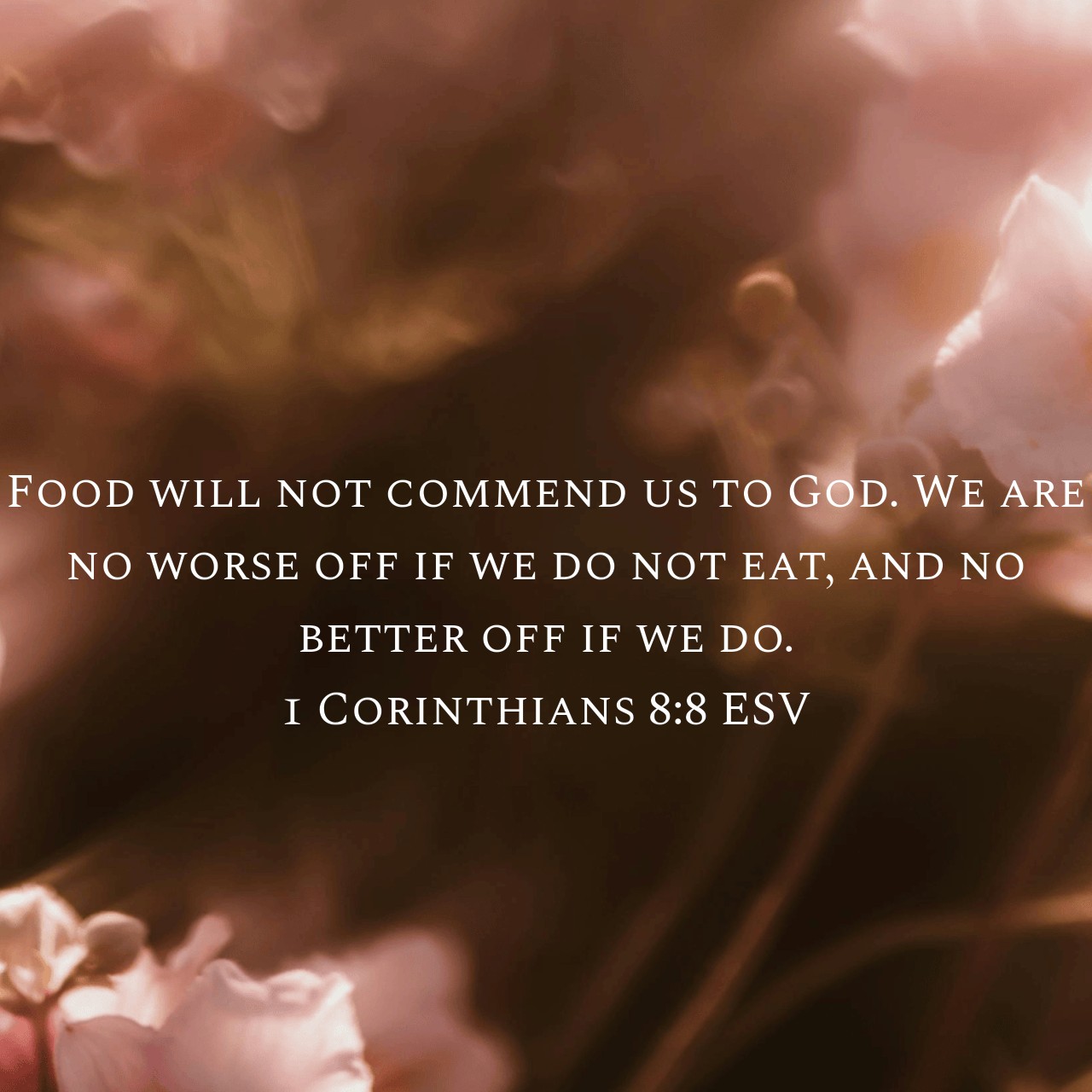Devotional 22 November 2025

Paul continues contrasting the wisdom of the world with the Wisdom of the Spirit. The Corinthians “know” that idols are nothing, and therefore “know” that food sacrificed to idols is harmless. But Paul stops them: not everyone has that knowledge. Some believers, fresh out of pagan backgrounds, still associate idol‐meat with idol worship. Their conscience is not yet trained by Scripture; it is still shaped by past experiences. If they are pressured to eat, they do not simply participate in a harmless act, they participate in something they believe God forbids. And Paul says that when someone acts against their conscience, their conscience is defiled (1 Corinthians 8:7).
The wisdom of the world says that if something is harmless, you should confidently do it and encourage others to do it as well. But the Wisdom of the Spirit teaches the opposite: it is never safe to go against conscience, and it is never loving to lead someone into what they believe is sin. “Whatever does not proceed from faith is sin” (Romans 14:23). Even if the act itself is neutral, the heart posture matters. Sin is not merely about the nature of the action; sin is primarily about rebellion. To do what we believe God disapproves of (even if we’re mistaken) is to choose disobedience.
This is why Paul warns that encouraging a weaker believer to violate their conscience is not a small matter but a serious injury to their soul. Later he will even call it a sin “against Christ Himself” (1 Corinthians 8:12). Immature believers need patient instruction, not pressure; they need protection, not provocation. Hebrews says that discernment develops “by constant practice” (Hebrews 5:14), and until the conscience is trained, Christians must tread gently.
At the same time, Paul reminds the stronger believer of a liberating truth: food will not commend us to God (1 Corinthians 8:8). Jesus Himself declared all foods clean (Mark 7:18–19). Our relationship with God is grounded in Christ alone, not in diets, taboos, or cultural habits (Philippians 3:8–9). Eating does not bring us closer to God; abstaining does not keep us distant. What matters is whether our actions are shaped by love and carried out in faith.
So Paul’s message is clear: Christian freedom is real, but Christian love must govern how we use it. Knowledge without love destroys, but knowledge guided by love protects the conscience, nurtures maturity, and points believers toward obedience from the heart.